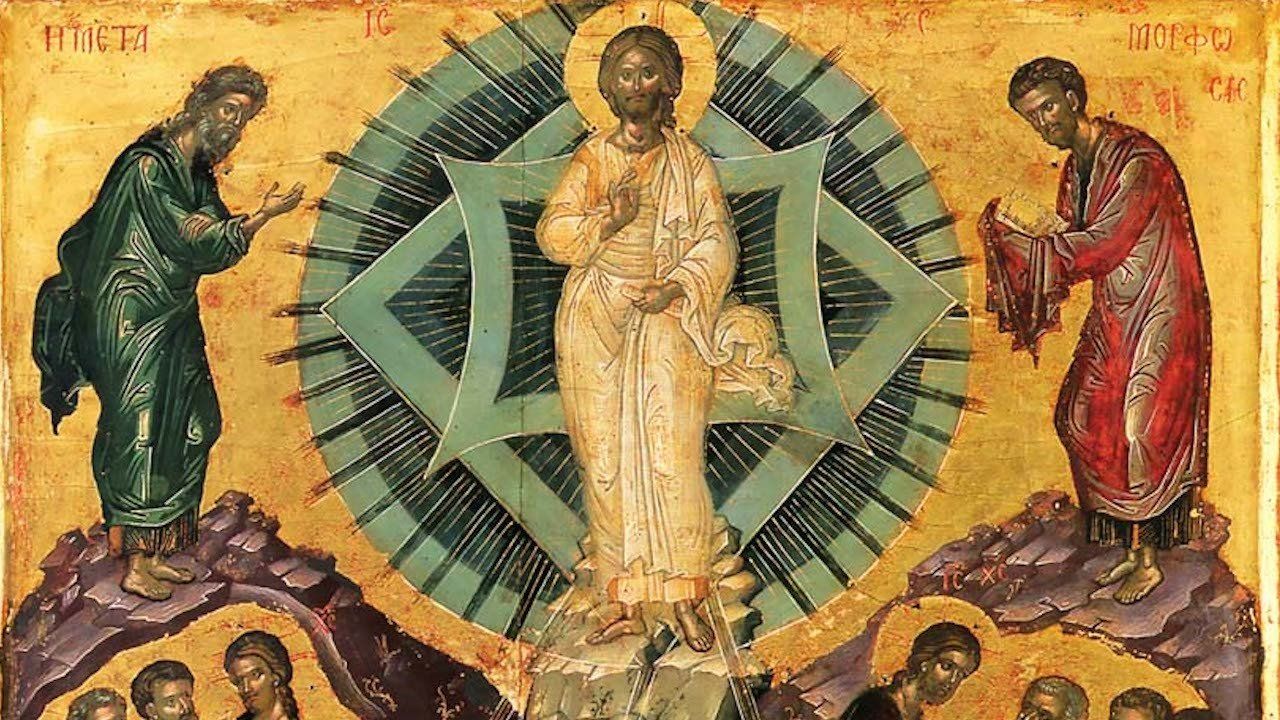THE WORD
“sacred” is one of a whole group of cognate words – words like sacrament, sacrilege, sacrosanct, consecrate, sacrifice – the original meaning of this last, sacrifice, being precisely to “make sacred” (
sacra facere). Its root, then, is Latin, not Greek: “sacer,” still present in our sacerdotal, of or pertaining to a priest; and it denotes something set apart, devoted to a deity, a holy offering. In early Christian language it was applied in its synonymous form,
sacramentum, to any action or object which as mirror or vehicle or form of the Divine was regarded as revealing the Divine. We are at once in the midst of things. The sacred is something in which the Divine is present or which is charged with divine energies. The very idea of the sacred presupposes to start with the presence of the Divine or the existence of God. Without the Divine – without God – there can be no holiness, nothing sacred. We cannot talk about the sacred without presupposing God, just as we cannot talk about sunlight without presupposing the sun, however many mirrors it may be reflected in.
Moreover, God is not only the principle – the original cause – of all making sacred. He alone is sacred. At one of the most solemn moments in the divine liturgy of the Orthodox Church the priest raises the consecrated bread before the congregation and cries: “Holy things to those who are holy”; whereupon the congregation responds: “Only One is holy, only One is Lord, Christ in the glory of God the Father.” The presence of God is, that is to say, the initial and ultimately unique presupposition of the sacred, for the simple reason that without that presence there is no sacredness anywhere. This means that if, for instance, earth, nature, life, art, or anything else is sacred, this is because it is the expression or revelation of something infinitely more than itself, something which it but discloses or manifests. It is not because it is sacred in its own right, apart from this Other that it enshrines, still less because we make it sacred. The first symptom of the profane mind – of the idolatrous mind – is its habit of separating its ideas of things from the idea of God; because as soon as you do begin to separate these ideas from the idea of God you have set out on the path that leads to the desacralization, the desecration and ultimately to the destruction of the things themselves.
If, then, something in the physical or psychological realm – the realm in which we experience the greater part of what we do experience – is sacred, this is because God, the wholly Other, has irrupted into or ingressed upon it. The sacred, in so far as we experience it, presupposes the ingression of that which is wholly Other upon the physical or psychological realm. This posits a theme crucial to the understanding of the sacred: the theme of the transcendent.
This theme may be introduced by way of a comment. In much contemporary literature that speaks of a new approach to things – that speaks of mankind having reached a turning-point or being about to enter a new age, the age of Aquarius or the solar age – one frequently comes across the word whole, or holistic: we are asked to see things as a whole, in all the complexity of their multi-interrelationships, and not as isolated, fragmented, non-participative phenomena or substances, which is the way we have been conditioned to see them over the last few centuries.
This is excellent, so far as it goes. But it doesn’t go as far as the point that would make it really meaningful. Because the interrelationships that are spoken of and the wholeness which they are said to constitute appear to be confined to the psychological and physical realms alone. That which lies beyond this realm – the transcendent – appears to be tacitly left out of account, almost as if it were irrelevant to the real world with which modern science, including the so-called new physics and parapsychology, is concerned.
Yet to talk about wholeness, or the holistic approach to things, without including within one’s perspective that which lies beyond the psychological and physical realm, is to put the cart before the horse. For just as there can be nothing sacred without God, because ultimately God alone is sacred, so there can be no wholeness without God, because ultimately God alone is whole. It is God that is the principle and source of wholeness, and without participation in God there can be no escaping fragmentation, disintegration, self-alienation, however much we may struggle against them. In Greek the words which correspond to the English words save, salvation, Savior, contain the sense both of soundness and of wholeness. To be saved is to attain a state in which one is sound and whole, entire; and the Savior is He who bestows these qualities – who integrates, makes whole, keeps alive and well – because they are qualities that belong to Him and to no-one and nothing else. That is why when we lose contact with God, or when we ignore the transcendent, we not only cut ourselves off from the source of sacredness but also, and as a consequence, fall into a state of sickness and self-division.
Indeed, it is this losing contact with God, the source of holiness and wholeness, that is the crux of the fall of man; and our modern age exemplifies it as perhaps no other age ever has, because it is the product of a state of mind which has lost the sense not only of this fall but also and correspondingly of practically every aspect of the sacred.
~Philip Sherrard, excerpt from The Sacred in Life and Art,
available for purchase at Eighth Day Books










